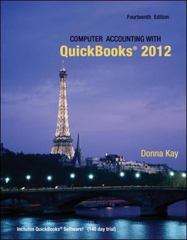Question
Comparing Income Statements and Balance Sheets of Competitors Following are selected income statement and balance sheet data from two retailers: Abercrombie & Fitch (clothing in
Comparing Income Statements and Balance Sheets of Competitors
Following are selected income statement and balance sheet data from two retailers: Abercrombie & Fitch (clothing in the high-end market) and TJX Companies (clothing retailer in the value priced market), for the fiscal year ended January 30, 2016.
(a) Express each income statement amount as a percentage of sales.
Round your answers to one decimal place (ex: 0.2345 = 23.5%)
Income Statement($ thousands)ANFTJXSales$3,518,680$30,944,938Cost of goods sold1,361,137Answer
%22,034,523Answer
%Gross profit2,157,543Answer
%8,910,415Answer
%Total expenses2,121,967
Answer
%6,632,757
Answer
%Net income$ 35,576
Answer
%$2,277,658Answer
%
(b) Express each balance sheet amount as a percentage of total assets.
Round your answers to one decimal place (ex: 0.2345 = 23.5%).
Balance Sheet($ thousands)ANFTJXCurrent assets$1,178,980Answer
%$6,772,560Answer
%Long-term assets1,254,059Answer
%4,726,922Answer
%Total assets$2,433,039$11,499,482Current liabilities$534,703Answer
%$4,402,230Answer
%Long-term liabilities602,614
Answer
%2,790,177
Answer
%Total liabilities1,137,317Answer
%7,192,407Answer
%Stockholders' equity1,295,722Answer
%4,307,075Answer
%Total liabilities and equity$2,433,039$11,499,482
Which of the following statements about business models is most consistent with the computations for part (a)?
ANF's expenses as a percentage of sales are higher because it spends more on advertising than does TJX.
ANF is a high-end retailer that is able to charge high prices for its products, but bears substantial operating costs to support its "shopping experience."
ANF's profit is higher than TJX's as a percentage of sales because its sales are higher than TJX's.
ANF's gross profit is higher than TJX's because its sales volume allows it to manufacture clothes at a lower per unit cost than can TJX.
Which of the following statements about business models is most consistent with the computations for part (b)?
ANF reports lower current assets as a percentage of total assets because it pays its vendors on a more timely basis than does TJX.
ANF reports higher long-term assets as a percentage of total assets because it depreciates its long-term assets more slowly than does TJX.
ANF reports lower current assets and higher long-term assets as a percentage of total assets because it carries less inventory and has a greater capital investment in its stores than does TJX.
ANF reports lower current assets as a percentage of total assets because it is a smaller company and cannot afford the investment in inventory.
(c) Which company has a lower proportion ofdebt? What do the ratios tell us about relative riskiness of the two companies?
ANF has a lower proportion of debt than does TJX, which implies that ANF is less risky than TJX.
TJX has a lower proportion of debt than does ANF, which implies that TJX is less risky than ANF.
ANF has a higher proportion of debt than does TJX, which implies that ANF is less risky than TJX.
TJX has a higher proportion of debt than does ANF, which implies that TJX is less risky than ANF.
Step by Step Solution
There are 3 Steps involved in it
Step: 1

Get Instant Access to Expert-Tailored Solutions
See step-by-step solutions with expert insights and AI powered tools for academic success
Step: 2

Step: 3

Ace Your Homework with AI
Get the answers you need in no time with our AI-driven, step-by-step assistance
Get Started


